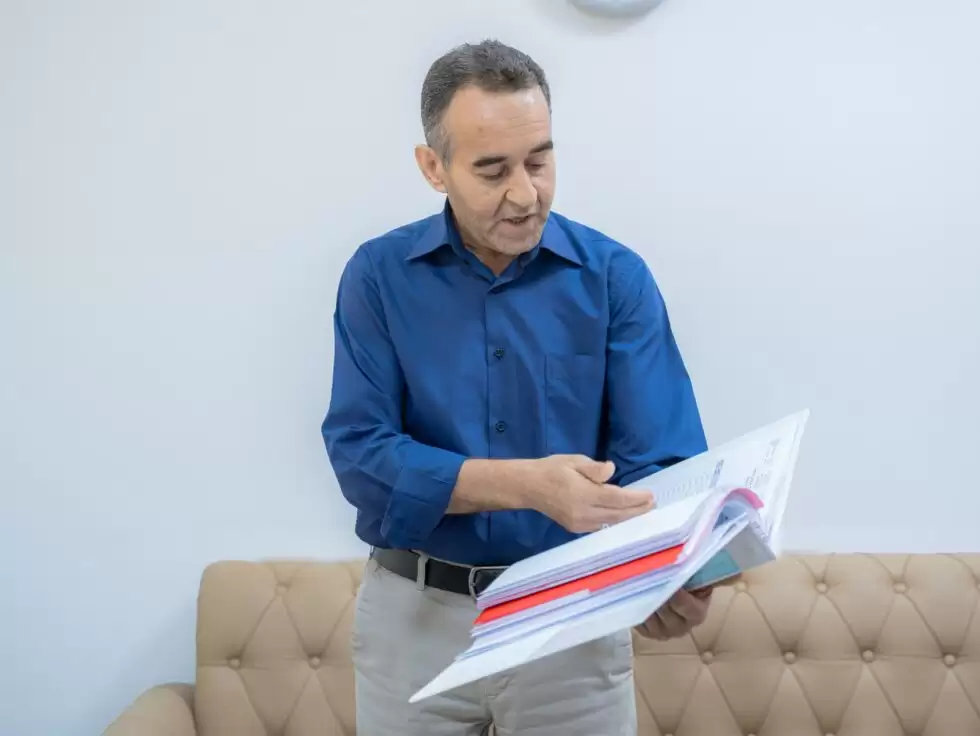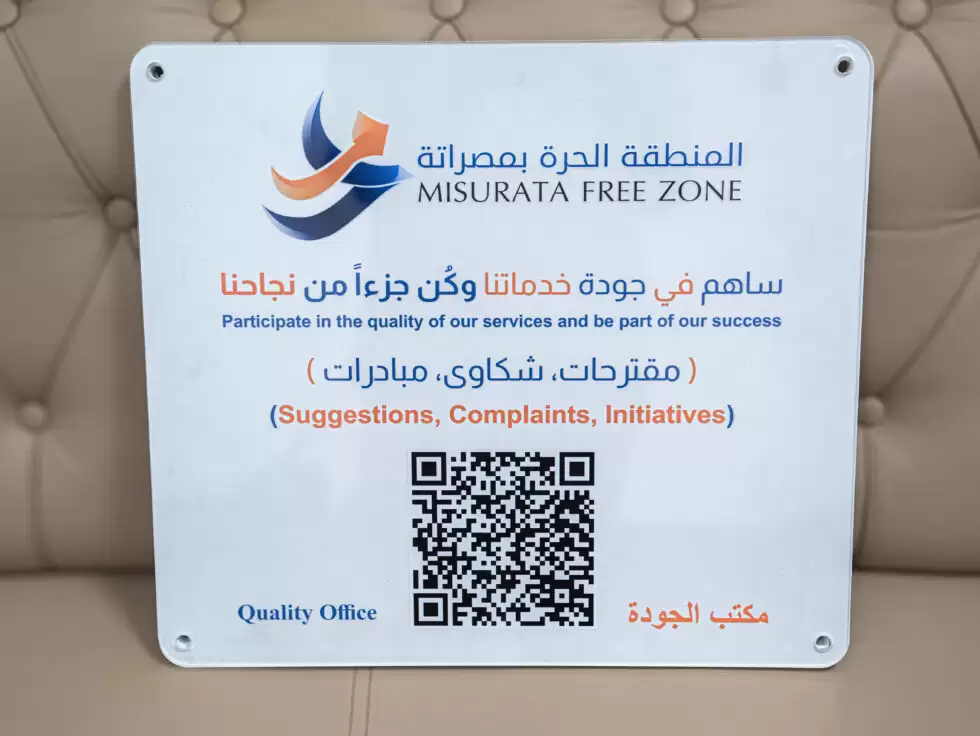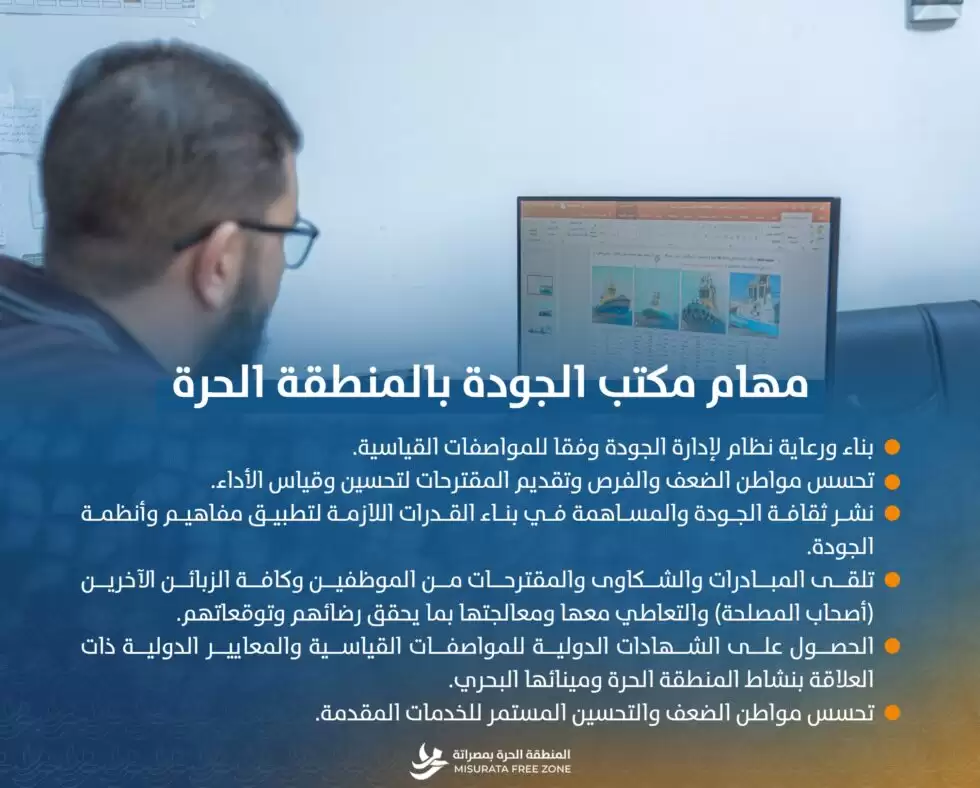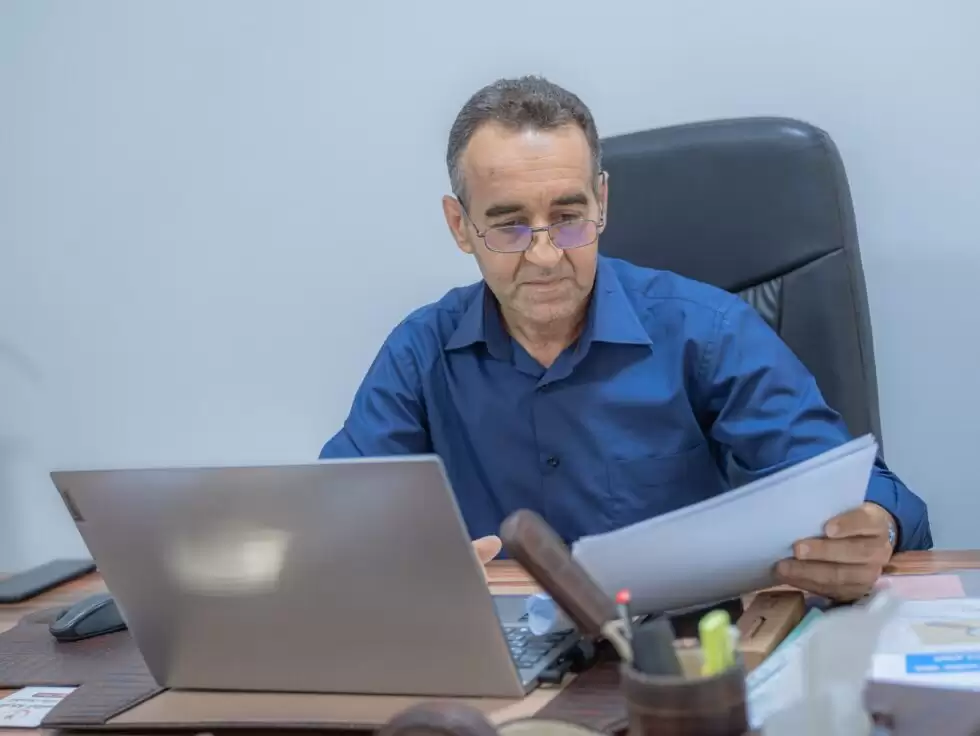Free Zone Quality Office: A breakthrough and aspirations to build a quality management system that achieves improved performance and excellence in service provision
- Published on: 10 November 2024
- Category: Activities & Events
- اقرأ باللغة العربية

Building a quality management system is one of the main foundations for the success of organizations in various sectors, and the application of this concept has become a priority for organizations in different activities. Hence the need in the field of free zones and ports to adopt this concept to provide a competitive and attractive work environment for investment. This system contributes to improving performance, efficiency of operations and reducing costs. In this report with the Director of the Quality Office in the region (Mr. Muhammad Al-Suwaih), we discuss the most important aspects of initiating the construction of a quality management system in the Misurata Free Zone and its seaport, and the role of this in improving performance, enhancing competitiveness and attracting investments.
Quality Management System:
It is a management approach that focuses on the continuous improvement of processes and services, by adhering to the standards and international quality standards set by specialized and recognized international institutions, the most important of which is the "International Organization for Standardization (ISO)), with the aim of building a system that identifies and meets the current and expected needs of customers and adapts to local and international challenges and changes. Based on this role, which is reflected in the construction and implementation of a quality management system, the free zone management has embarked on consolidating this concept and the beginning was the establishment of an administrative division under the name of (Quality Office). During the last period, the office sought to form and qualify the office's work team to be the nucleus of building this system, as its employees received many qualifying courses in the field of building a quality management system in accordance with the standard specification (ISO 9001-2015), as well as documenting work procedures, measuring performance indicators and other qualifying programs in the field of specialization that serve the construction of this system.
Quality Management System:
It is a management approach that focuses on the continuous improvement of processes and services, by adhering to the standards and international quality standards set by specialized and recognized international institutions, the most important of which is the "International Organization for Standardization (ISO)), with the aim of building a system that identifies and meets the current and expected needs of customers and adapts to local and international challenges and changes. Based on this role, which is reflected in the construction and implementation of a quality management system, the free zone management has embarked on consolidating this concept and the beginning was the establishment of an administrative division under the name of (Quality Office). During the last period, the office sought to form and qualify the office's work team to be the nucleus of building this system, as its employees received many qualifying courses in the field of building a quality management system in accordance with the standard specification (ISO 9001-2015), as well as documenting work procedures, measuring performance indicators and other qualifying programs in the field of specialization that serve the construction of this system.
Office plan for the next year 2025:
The office has prepared an action plan for the year 2025 according to specific objectives and a timetable throughout the months of the year, detailing interim goals, programs and executive activities, as well as indicators to measure their results, all of which are aimed at achieving the general goal, which is "Building an effective quality management system in the free zone and its seaport by the end of 2025", and these objectives are summarized as follows: Reviewing, completing and approving the work procedures manual for administrative divisions and work accordingly. Work with the KPIs manual, which has been finalized. Implementing a set of mechanisms and programs to spread the culture of quality by non-traditional means. Establishing a mechanism for dealing with initiatives, complaints and suggestions and dealing with them. Qualification for Standard ISO9001-2015.
The office has prepared an action plan for the year 2025 according to specific objectives and a timetable throughout the months of the year, detailing interim goals, programs and executive activities, as well as indicators to measure their results, all of which are aimed at achieving the general goal, which is "Building an effective quality management system in the free zone and its seaport by the end of 2025", and these objectives are summarized as follows: Reviewing, completing and approving the work procedures manual for administrative divisions and work accordingly. Work with the KPIs manual, which has been finalized. Implementing a set of mechanisms and programs to spread the culture of quality by non-traditional means. Establishing a mechanism for dealing with initiatives, complaints and suggestions and dealing with them. Qualification for Standard ISO9001-2015.
The role of quality in attracting investments and increasing the volume of demand for port services
The importance and role of quality lies in enhancing the reputation and loyalty of customers and employees in the free zone and its seaport through the level of quality of services provided, competitive positioning among similar institutions in the same activity locally and internationally, and obtaining market share, as well as its role is to protect the investor through the application of quality achievement requirements by adopting specific standard specifications that contribute to protecting him from fraud phenomena and contribute to enhancing confidence in the services provided, reducing costs and waste of time and optimal use of available resources (financial). Human materialism ......).
Key Challenges of the Quality Office in the Free Zone
The novelty of the concept of the quality system, the multiplicity, complexity and expansion of the volume of operations and transactions of the Misurata Free Zone and its seaport, as well as resistance to change, makes building and implementing a quality management system the main challenge, and this needs great effort, programs and some time to overcome this challenge by understanding everyone, complying with the requirements of the system, and making the quality of service provision the responsibility of everyone at all administrative and functional levels. As well as the quality of services subject to personal perceptions that distinguish them from the quality of production, which are subject to the dimensions of facilitation in the provision of explicit and implicit service and achieve reliability and rapid response in the provision of service to create assurance and reassurance for the customer or employee.
The importance and role of quality lies in enhancing the reputation and loyalty of customers and employees in the free zone and its seaport through the level of quality of services provided, competitive positioning among similar institutions in the same activity locally and internationally, and obtaining market share, as well as its role is to protect the investor through the application of quality achievement requirements by adopting specific standard specifications that contribute to protecting him from fraud phenomena and contribute to enhancing confidence in the services provided, reducing costs and waste of time and optimal use of available resources (financial). Human materialism ......).
Key Challenges of the Quality Office in the Free Zone
The novelty of the concept of the quality system, the multiplicity, complexity and expansion of the volume of operations and transactions of the Misurata Free Zone and its seaport, as well as resistance to change, makes building and implementing a quality management system the main challenge, and this needs great effort, programs and some time to overcome this challenge by understanding everyone, complying with the requirements of the system, and making the quality of service provision the responsibility of everyone at all administrative and functional levels. As well as the quality of services subject to personal perceptions that distinguish them from the quality of production, which are subject to the dimensions of facilitation in the provision of explicit and implicit service and achieve reliability and rapid response in the provision of service to create assurance and reassurance for the customer or employee.




